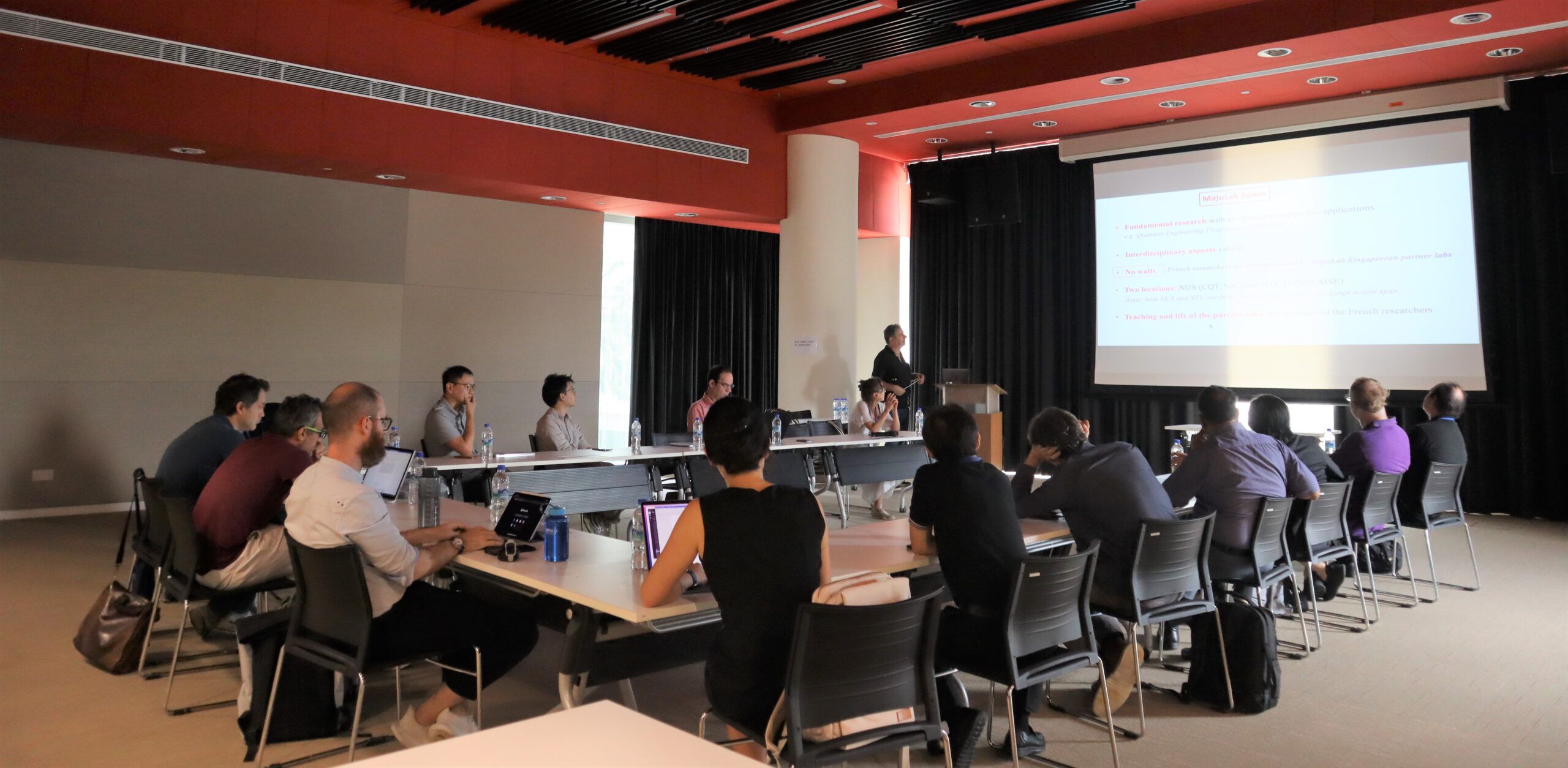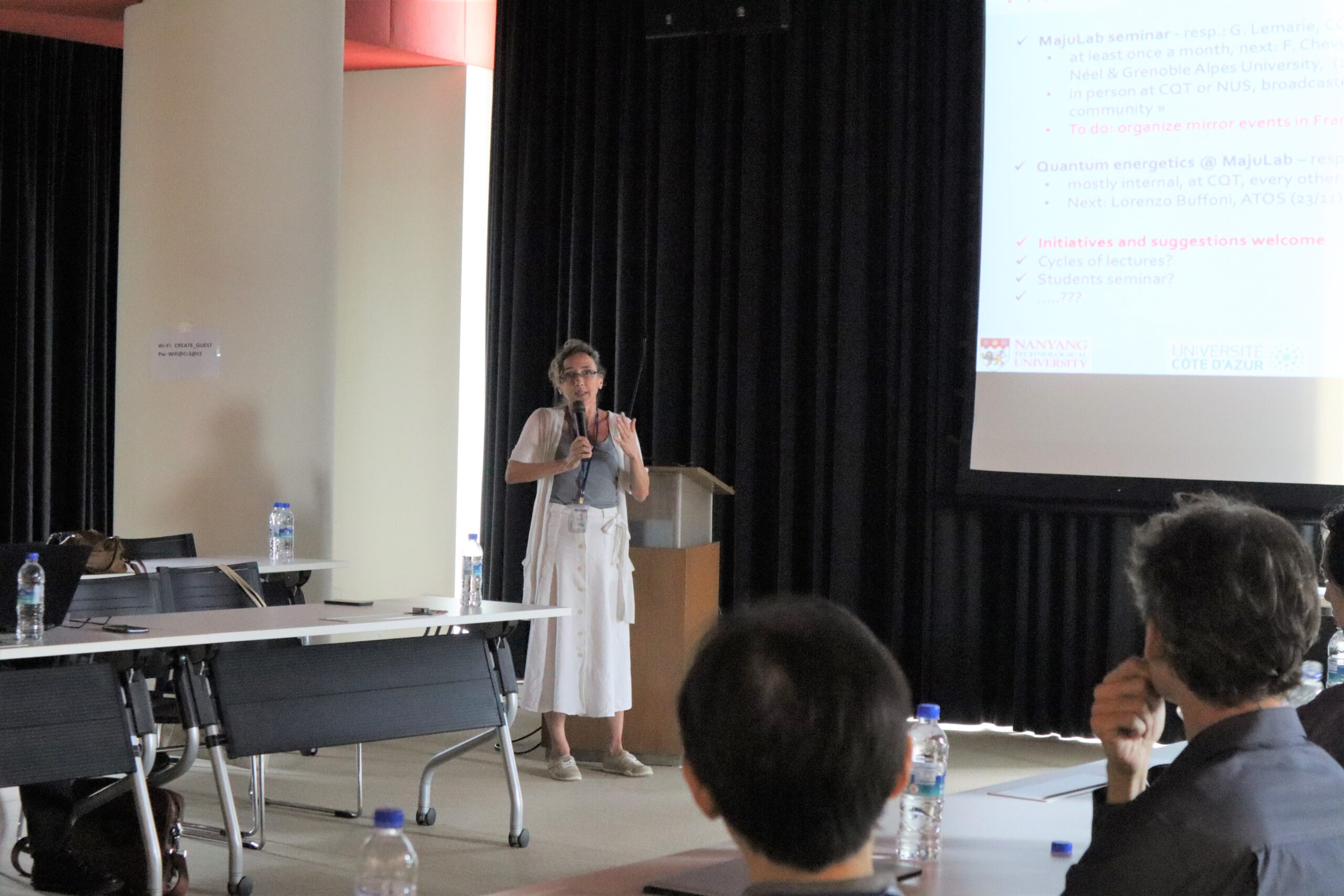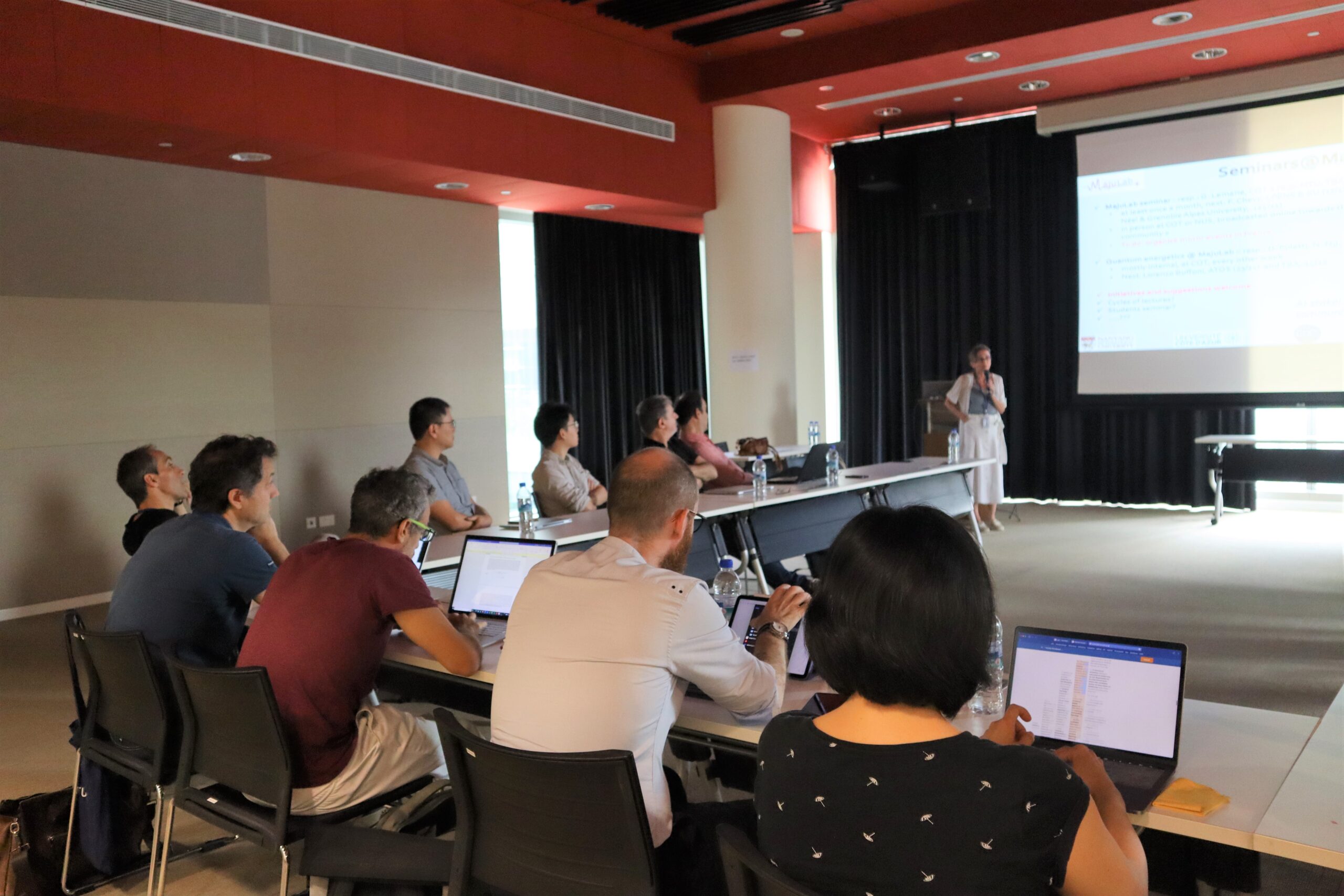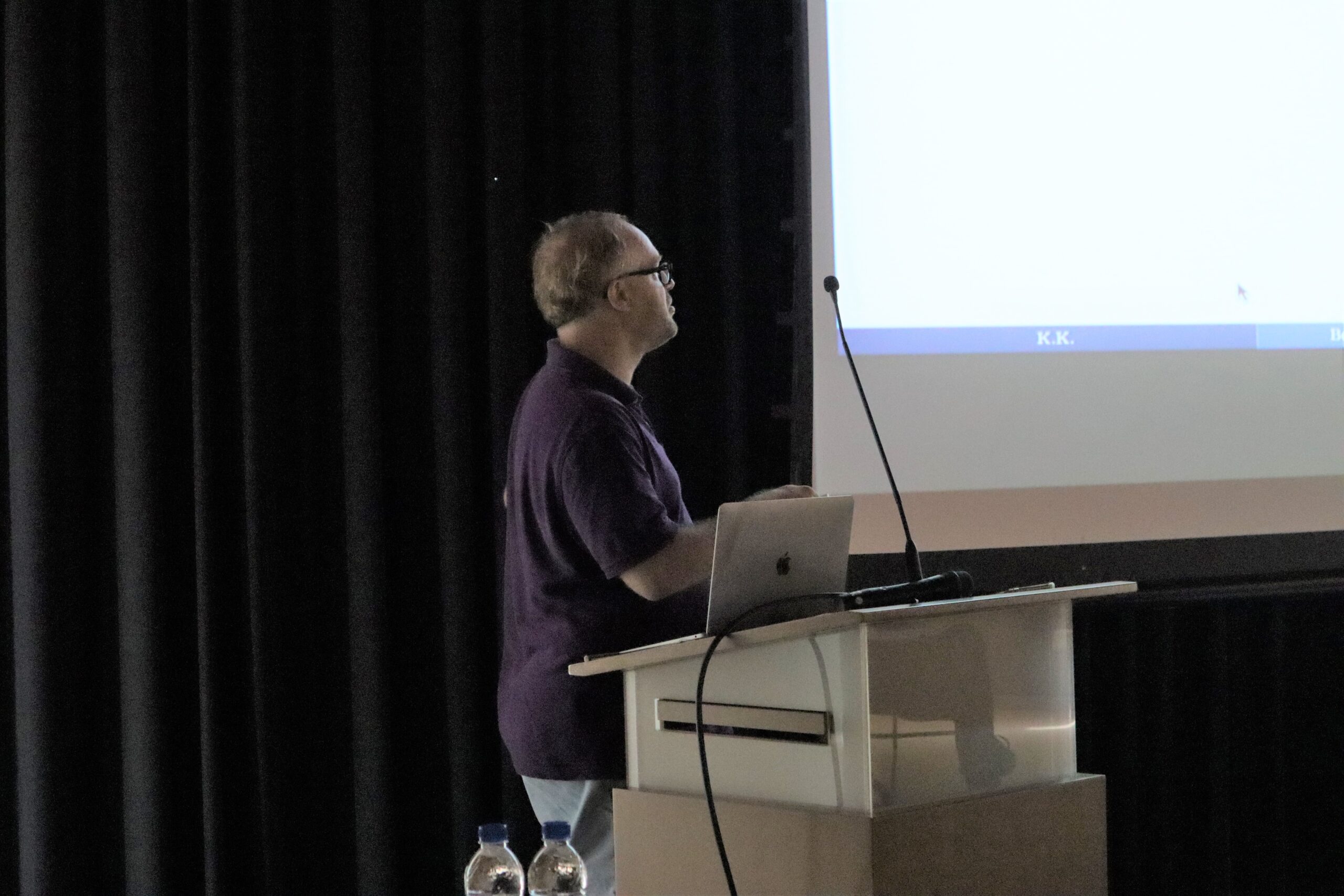Majulab Day – Researchers [15 November 2022]

Majulab Day – Tuesday, November 15, 2022
9am – 2pm | CNRS@CREATE Seminar Room (level 2) .

Schedule:
-
9.00 – 9.20 THROWBACK ON MAJULAB 2.0 – Christian Miniatura 9.20 – 10.00 MAJULAB 3.0 – Alexia Auffèves 10.00 – 10.45 AXIS QUANTUM PHOTONICS AND OPTOMECHANICS – Lan Sho-You, NTU “Cold-atoms laboratory in a hollow-core photonic crystal fiber”
Confining particles in hollow-core photonic crystal fibers has opened up new prospects to scale up the distance and time over which particles can be made to interact with light. Coherent manipulation of external and internal degrees of freedom of guided ultra-cold atoms in optical fibers has been attempted, with the aim of enhancing the performance of quantum experiments and to further develop miniaturized quantum devices. In this talk, I will show our recent works on coupling and guiding cold atoms in a hollow-core photonic crystal fiber. I will present and discuss a few key cold atom experiments in this hollow-core waveguide environment, including atom interferometers and non-classical state generation.
10.45 – 11.15 BREAK 11.15 – 12.00 AXIS QUANTUM INFORMATION SCIENCE – Marco Tomamichel, CQT, MajuLab, ECE (NUS) “Avoiding irreversibility – lossless interconversion of quantum resources”
I will discuss an interesting resonance effect we noticed when studying finite-size interconversion in resource theories, specifically resource theories (like pure state entanglement, coherence or thermal operations) where the one-shot interconversion is enabled by a majorisation relation. Namely we find that for some pairs of resources, characterized by an entropic condition, finite-size interconversion is possible without significant loss.
12.00 – 12.45 AXIS QUANTUM MATTER – Gabriel Lemarié, CNRS MajuLab, CQT “Quantum non-ergodicity”
In this talk, I will give an overview of my research on quantum non-ergodicity, i.e. the study of isolated quantum systems that do not thermalize when put out of equilibrium. More generally it concerns systems where strong inhomogeneities emerge. An important ingredient is disorder, which can induce e.g. localization. I will discuss two situations on which I have been working with colleagues and students recently: two-dimensional Anderson localization which I will show is in the KPZ universality class and has glassy properties. Then, the Anderson transition on random graphs and its analogy with the many-body localization transition. I will conclude with a brief discussion of how one could use these non-ergodic properties for quantum computing.
12.45 – 13.30 AXIS QUANTUM ENERGETICS – M. Gu, NTU “Agents and Observers at the Interface of Thermodynamics, Complexity and Quantum Science”
The disciplines of thermodynamics, complexity and quantum science began with little in common. The first was developed to describe heat engines and their capacity to do work, the second to tackle the dynamics of structured macroscopic systems, and the third to understand new physics at the scale of single photons and electrons. Yet, these disciplines share surprising commonalities. In this talk, I will survey recent developments at the Quantum and Complexity Science Initiative, where we explore these commonalities using the perspective of agents and observers. We ask, what is it that makes a process or adaptive behavior look complex to an outside observer? How does this relate to an agent’s capacity to leverage the process for work? How do these concepts change when the agents and observers themselves can process quantum information? I illustrate how, in doing so, we arrive both at new ways to harness quantum technology and new insight into how our notions of complexity and work are fundamentally affected by the types of information we use.
13.30 – 14.00 Closing remarks



